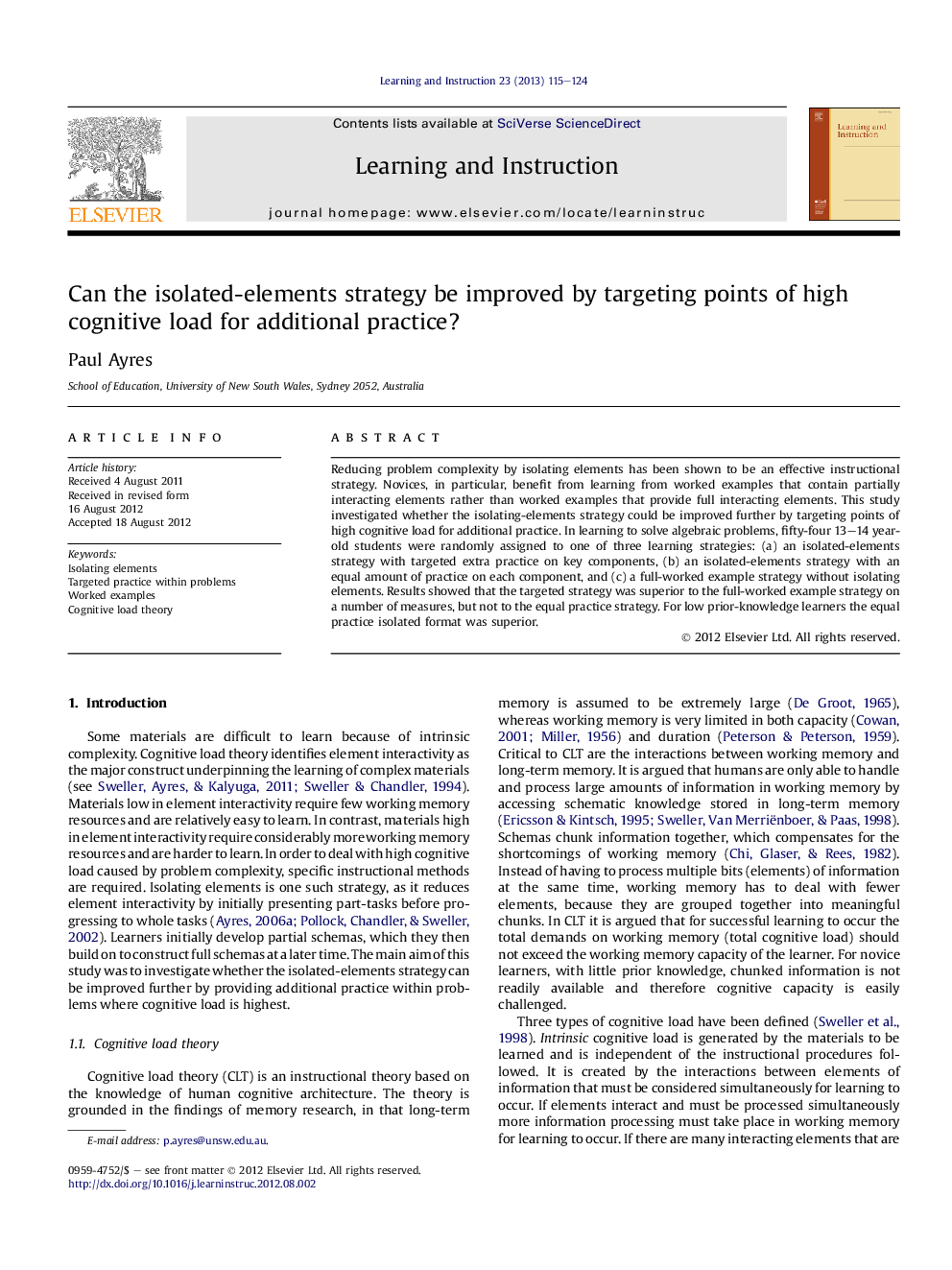| Article ID | Journal | Published Year | Pages | File Type |
|---|---|---|---|---|
| 365635 | Learning and Instruction | 2013 | 10 Pages |
Reducing problem complexity by isolating elements has been shown to be an effective instructional strategy. Novices, in particular, benefit from learning from worked examples that contain partially interacting elements rather than worked examples that provide full interacting elements. This study investigated whether the isolating-elements strategy could be improved further by targeting points of high cognitive load for additional practice. In learning to solve algebraic problems, fifty-four 13–14 year-old students were randomly assigned to one of three learning strategies: (a) an isolated-elements strategy with targeted extra practice on key components, (b) an isolated-elements strategy with an equal amount of practice on each component, and (c) a full-worked example strategy without isolating elements. Results showed that the targeted strategy was superior to the full-worked example strategy on a number of measures, but not to the equal practice strategy. For low prior-knowledge learners the equal practice isolated format was superior.
► Reduction of problem complexity was achieved by isolating elements. ► Targeted practice on isolated elements was more effective than full-worked examples. ► Novice learners benefited from equal practice rather than targeted practice.
